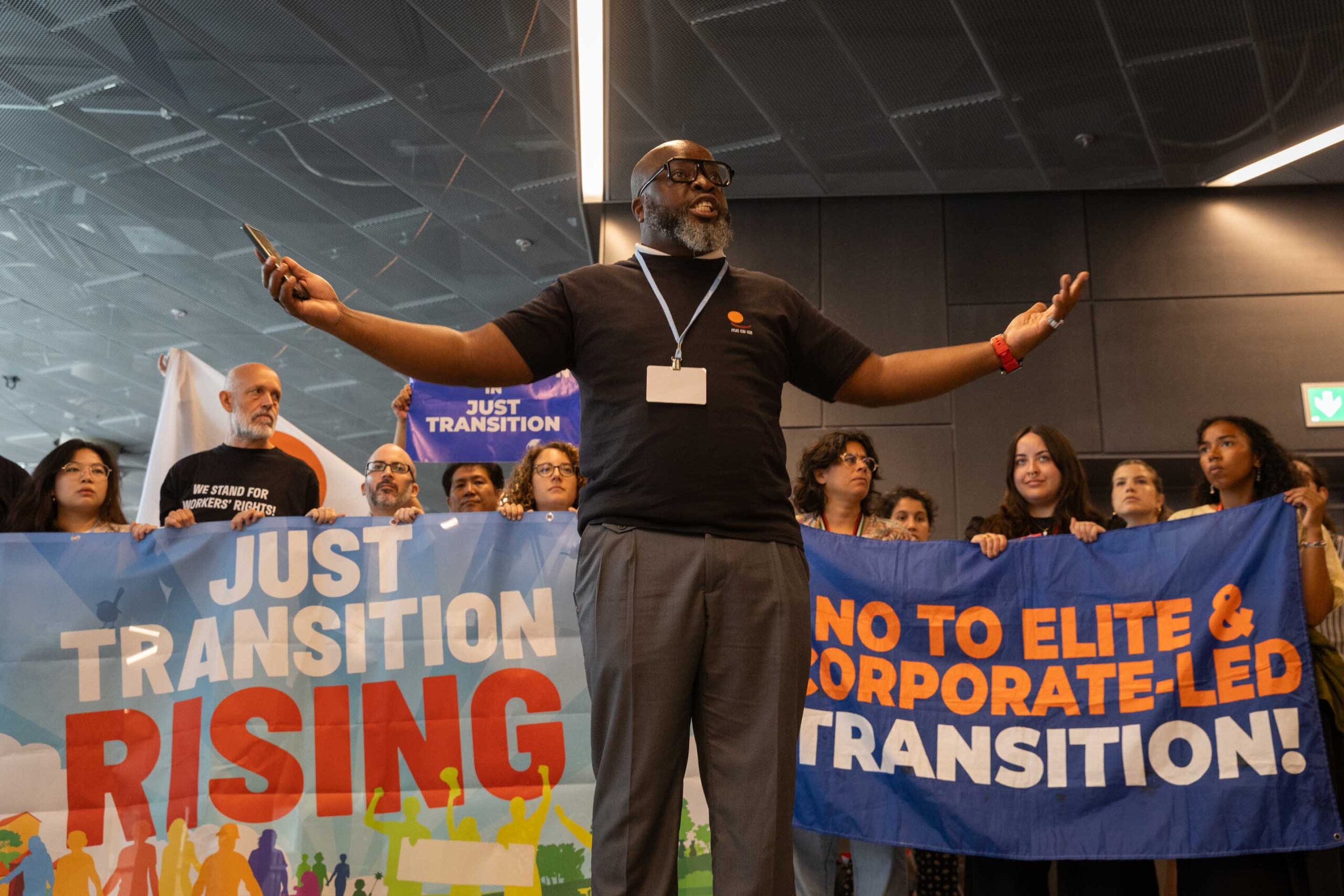Welcome boost for just transition
Without more social and economic justice, the green transition will be a “mirage”, Climate Action Network’s Anabella Rosemberg said on the last day of the Bonn climate talks, where activists are excited that talks on a Just Transition Work Programme (JTWP) have progressed rather well.
After 30 years of negotiations, planet-heating emissions are still going up – and part of the reason for this, Rosemberg told Climate Home, is that measures to cut them are often designed in a way that harms ordinary people. Governments then “use their citizens as a barrier to action” by arguing that green measures always cost jobs and hit peoples’ pockets, she explained.
That penny may be dropping. After stalling at COP29 in Baku, negotiators agreed in Bonn on a way forward for the JTWP, allowing them to get together with observers last night for beer-garden drinks by the Rhine.
Campaigners hope the JTWP will lead to a Baku Action Mechanism that enables advice-sharing with government officials at all levels who are trying to pursue a just transition on the ground. This would save them money on consultants, Rosemberg added. Supporters of the JTWP also want reporting on just-transition progress to be part of governments’ NDC climate plans.
Negotiators are today expected to decide to forward an informal note to COP30 in Belém, which says that the green transition should be fair to workers and protect nature, as well as advancing clean energy access and clean cooking for all. It should also promote gender rights and human rights, particularly for Indigenous, disabled, migrant and young people, the text says.
After Baku setback, activists call for ‘just transition’ to be front and centre at COP30
Although most governments indicated on Wednesday night they would approve this note, there were a few quibbles, according to a summary of discussions by reporting service IISD ENB which – unlike the media – is allowed in the negotiating rooms.
The Like-Minded Developing Countries group and the Arab Group – whose members both include Saudi Arabia – opposed a reference to the opportunities of moving away from fossil fuels in the context of expanding clean energy and clean cooking. These groups insisted that transition pathways should depend on national circumstances, IISD ENB reports.
Paraguay, which has a socially conservative, male-led government, opposed wording on gender-based approaches to just transition. Russia wanted to insert a reference to unilateral trade measures – something opposed by the European Union, whose carbon border taxes are the main target of that language.
These debates are likely to be hashed out in Belém – where, according to Rosemberg, more controversies are likely to emerge.
Bert de Wel from the International Trade Union Confederation told Climate Home workers could not afford for the just transition negotiations to be derailed by proxy fights between governments on other issues. “Whether you’re in the Global North or the Global South, your workers are depending on you to deliver a just transition,” he said.
But, Rosemberg added, for now there is a “solid basis” on which to build and “we have the political work to do in capitals to show the opportunities behind this win”.
Out in the real world, there have been protests on the streets against removal of fossil fuel subsidies and green taxes, from France to Nigeria. “If they were done in a just way, if they had workers and communities on board, maybe we would not be where we are right now with the NDC ambition gap,” Rosemberg said, referring to governments’ plans to cut emissions which are far off-track to meet global climate goals.


